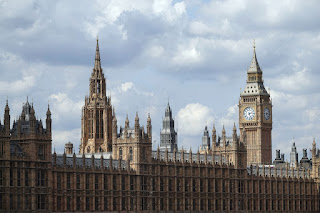Government Response to House of Lords Electric Vehicle Report: A Mixed Bag for EV Incentives
In response to the House of Lords Environment and Climate Change Committee's report titled 'EV Strategy: Rapid Recharge Needed', the government has outlined its stance on various recommendations aimed at incentivising the transition to electric vehicles (EVs). While the government has shown commitment in certain areas, its response reflects a mixed bag of policies and decisions.
One of the key highlights of the government's response is its pledge to maintain low company car tax rates, ensuring that the transition to electric vehicles remains affordable. The government has announced a gradual increase in company car taxes for electric vehicles, reaching a total of 5% for battery electric vehicles by April 2028. This contrasts with the trajectory for petrol and diesel cars, where tax rates will remain higher, with the most polluting cars subject to 37% rates by 2028.
However, the government has drawn criticism for its refusal to implement certain recommendations from the report, particularly regarding VAT rules for EV charging and the introduction of new incentives for the plug-in retail car market. Despite calls to equalise VAT for charging by reducing the rate applied to public charging to 5%, in line with domestic electricity, the government has ruled out any changes. This decision has been justified on the grounds of avoiding additional pressure on public finances, where VAT plays a significant role.
Additionally, the report had proposed targeted grants to incentivise the purchase of new EVs and explore options for incentivising second-hand electric car sales. While the government has defended its record on incentivising the plug-in new car market, it has not committed to reintroducing grants for the purchase of new EVs. However, it acknowledges the increasing availability of used EVs in the market and pledges to consider policy options to address potential market failures in this regard.
The government's response also touches upon workplace charging infrastructure and battery health standards. While it plans to assess the impact of grants on workplace charging over the coming year, it remains cautious about mandating workplaces to install charge points due to potential leasehold impacts. On battery health standards, the government partially agrees with the recommendation to develop a standard through collaboration with industry. It highlights ongoing efforts through the United Nations Economic Commission for Europe (UNECE) to set minimum durability and lifespan standards for EV batteries.
In conclusion, while the government's response demonstrates a commitment to certain aspects of EV adoption, such as maintaining low company car tax rates, it falls short in other areas, such as VAT rules for EV charging and incentives for the plug-in retail car market. As the transition to electric vehicles is crucial for achieving net-zero emissions, continued pressure from policymakers and stakeholders will be essential to drive meaningful change and accelerate the EV revolution.




